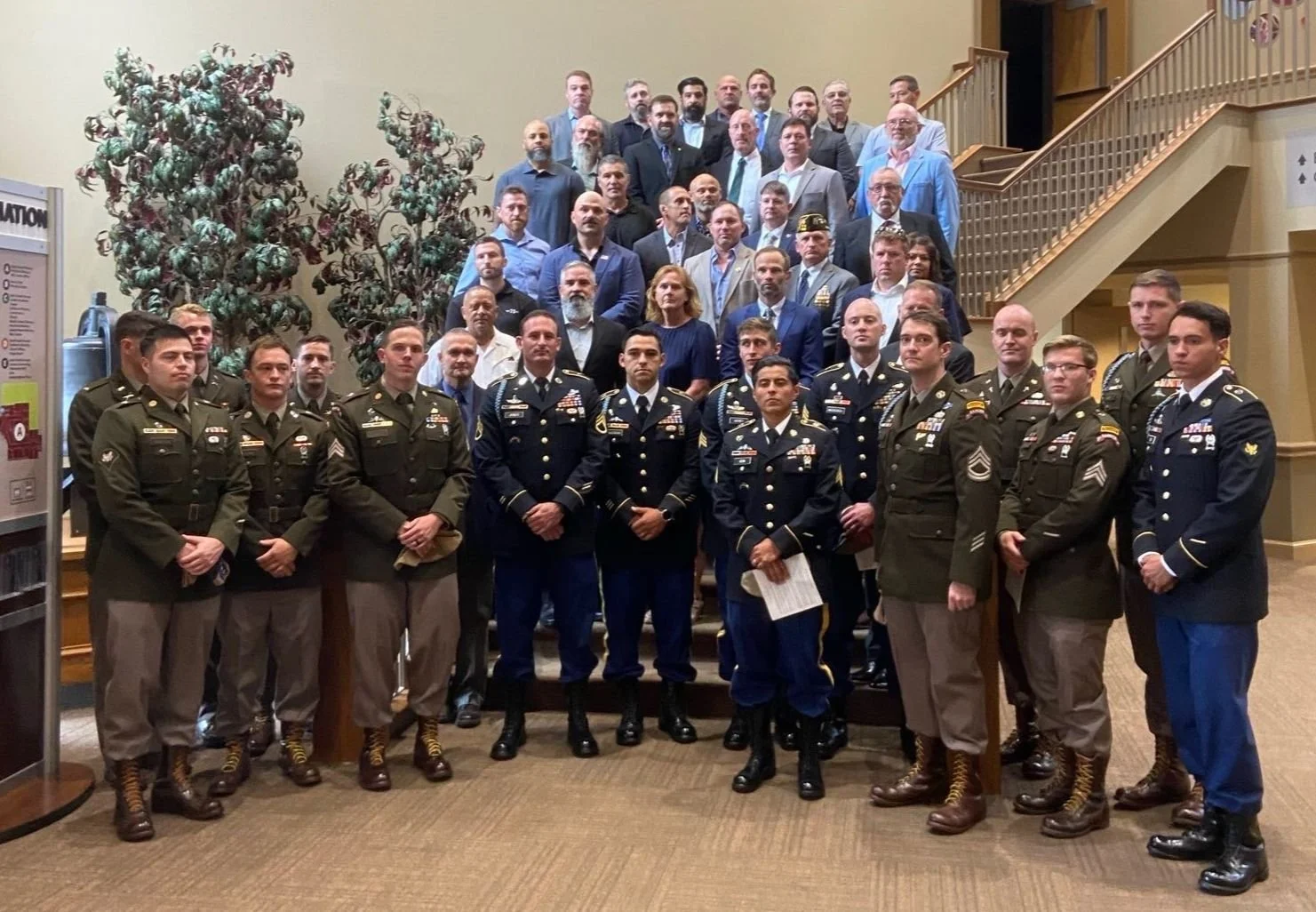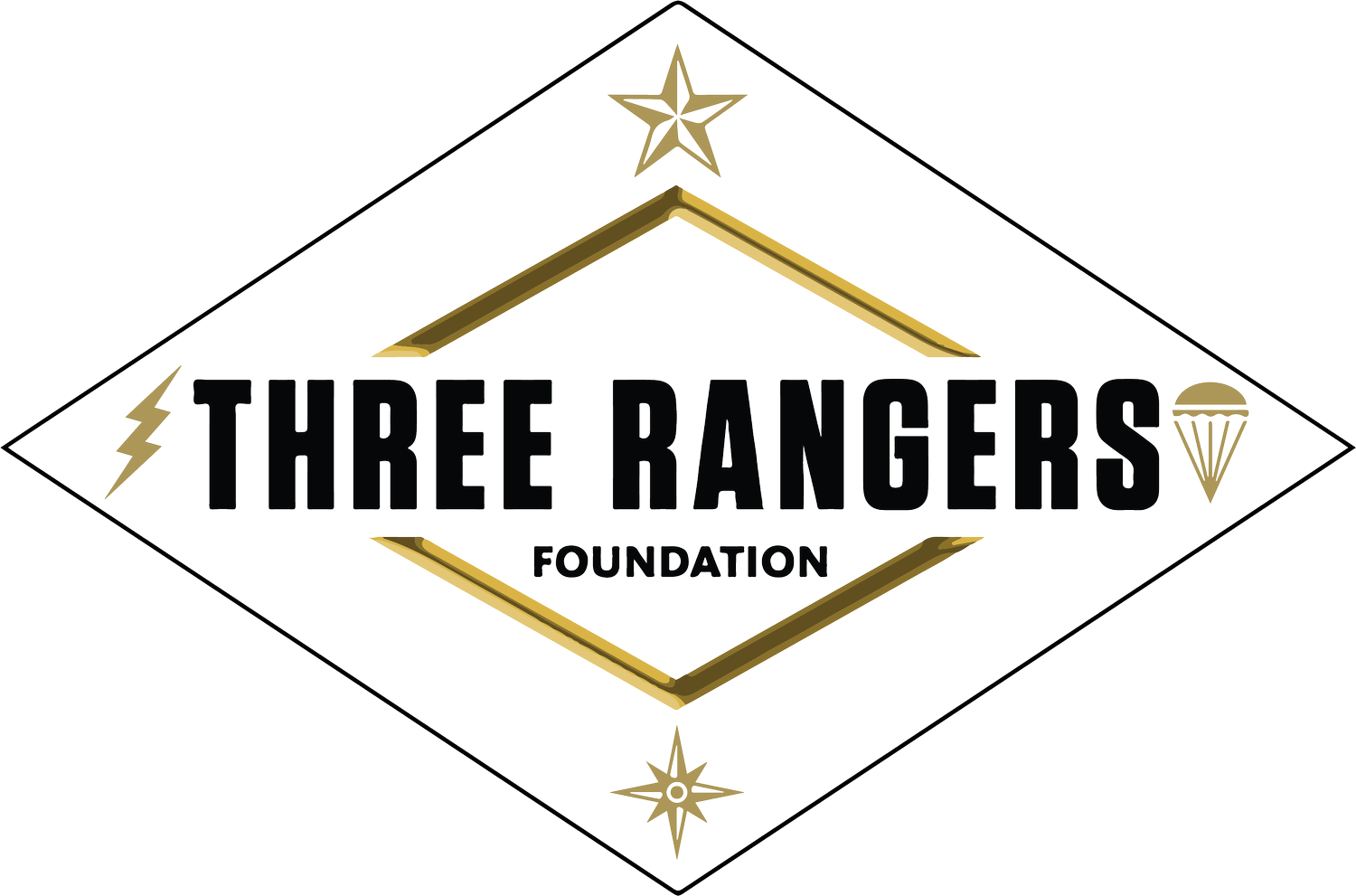
THINKING OF OURSELVES LESS: THE HEART OF SERVANT LEADERSHIP
“Do nothing out of selfish ambition or vain conceit. Rather, in humility value others above yourselves, not looking to your own interests but each of you to the interests of the others.” - Philippians 2:3-4

STANDING READY WITH THE ARMOR OF GOD
“Standing Ready with the Armor of God” - Ephesians 6:13-17

A NEW YEAR’S REFLECTION ON THE TRF COMMUNITY -- WHAT SNIPERS CAN TEACH US ABOUT FOLLOWING CHRIST
“Fixing our eyes on Jesus, the author and perfecter of our faith” - Hebrews 12:1–2

CHRISTMAS MESSAGE FOR 75TH RANGER VETERANS
“Greater love has no man than this: to lay down his life for his friends” - John 15:13

THANKSGIVING
“Give thanks to the Lord, for He is good; His love endures forever” - Psalm 107:1

LOOK FOR WORK
"Whatever you do, work at it with all your heart, as working for the Lord, not for human masters." - Colossians 3:23–24

THE HEART OF THE CREED
“Greater love has no one than this: to lay down one’s life for one’s friends.” - John 15:13

HOW DO YOU HONOR THE FALLEN OF THE 75TH RANGER REGIMENT? BY LIVING WELL.
“Therefore, I urge you, brothers and sisters, in view of God’s mercy, to offer your bodies as a living sacrifice, holy and pleasing to God—this is your true and proper worship.” - Romans 12:1

YOU ARE NOT ALONE
“Carry each other’s burdens, and in this way you will fulfill the law of Christ.” – Galatians 6:2

A NEW MISSION: WALKING IN PURPOSE BEYOND THE REGIMENT
“For I know the plans I have for you,” declares the Lord, “plans to prosper you and not to harm you, plans to give you a hope and a future.”—Jeremiah 29:11

PTSD – LET’S REFRAME THE CONVERSATION
“The Lord is near to the brokenhearted and saves the crushed in spirit.” – Psalm 34:18

ASKING GOD FOR HELP
Ask, and it will be given to you; seek, and you will find; knock, and it will be opened to you. For everyone who asks receives, and the one who seeks finds, and to the one who knocks it will be opened.
Matthew 7:7-8

WHO’S IN YOUR FIRE TEAM?
The Bible reminds us in Proverbs 27:17, "As iron sharpens iron, so one man sharpens another."

GO THE EXTRA MILE
And if anyone forces you to go one mile, go with them two miles. Matthew 5:41

GREETINGS FROM THE PHILIPPINESs

RANGERS—CHRISTMAS IS UPON US
The Advent Season is a time for both thanksgiving and prayer.

KEEP DOING HARD THINGS

PATIENCE IS A VIRTUE
Rangers are generally good at a lot of things. However, almost universally among Rangers, patience is not one of them!
